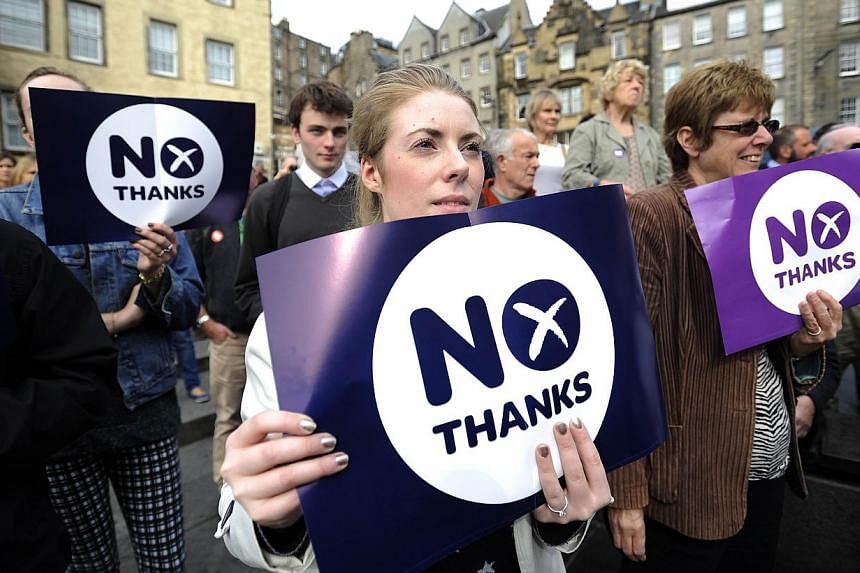IF SCOTLAND ultimately votes against independence, the British government will breathe a huge sigh of relief, but there will be no jubilation.
For, as opinion polls indicate, the results will be very close, with only a few percentage points separating winners from losers.
Yesterday, the latest monthly TNS poll showed support for independence at 38 per cent, up from 32 per cent previously. Another 23 per cent of respondents were undecided.
Scottish nationalists will, therefore, be able to claim not only that their fight for separation continues, but that a fresh referendum could be held as early as 2016, should the Scottish National Party retain power in that year's regional elec-tions.
And it is possible that a narrow defeat for the current independence bid will embolden a more radical separatist movement in Scotland, one which accuses the current generation of Scottish politicians of being too moderate, and which advocates complete separation from the rest of the United Kingdom, including the election of a new head of state to replace the British Queen.
To prevent this, the British government will have to offer Scotland a very large measure of autonomy, including extended powers to change the taxation system, and keep most of the money raised in Scotland.
The Scots may also gain overseas representation, in the shape of Scottish diplomats attached to British embassies.
The negotiations for a new, expanded autonomy will begin immediately, but the Scottish government will have every incentive to reject the initial offer from London and ask for more; talks on the UK's internal arrangements will become a stage for the next referendum showdown.
As a result, it will be very difficult for Britain to avoid a wider debate about adopting a written Constitution which delineates the powers of each regional government; at present, the country is unique in Europe for having no such charter.
One option is to create a federal upper chamber of Parliament to replace the House of Lords, which is currently appointed.
And although British Prime Minister David Cameron will retain power if the Scots vote "no" to independence, his reputation will suffer a severe blow.
For he pushed for this referendum on the assumption that its result would be a clear rebuff to independence and put an end to Scotland's separatist movement for at least a generation.
But that clearly does not look likely now, and Scotland's aspirations to stand on its own feet will dominate Britain's domestic agenda for years to come.

